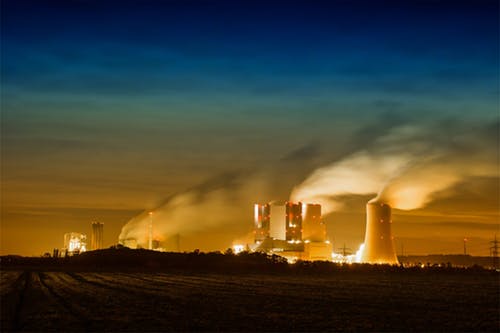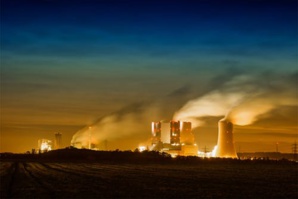If the reports on the Financial Times are something to count on then the cost of “eliminating greenhouse gas emissions by 2050” in Britain, estimated by the “official climate advisers”, will see a forty percent hike, as cited by a letter from the finance ministry.
The “Committee on Climate Change”, in short CCC, of Britain had informed earlier that the country needs to aim towards hundred percent reduction of “net greenhouse gas emissions by 2050” while its previous target rested on eighty percent reduction as a measure to curb the global temperature rise.
As per CCC, this attempt would claim one to two percent of annual GDP which is equivalent to nearly “50 billion pounds” or “$64 billion” on a yearly basis.
The Finance Minister, Philip Hammond, wrote to Prime Minister Theresa to inform that the “Department for Business, Energy and Industrial Strategy”, in short BEIS, a government’s branch came up new estimates that the costs are likely to rise further than previously thought. The Financial Times published a copy of Hammond’s letter on its online platform, which stated:
“The Committee on Climate Change estimate that reaching net zero emissions by 2050 will cost c. 50 billion pounds per annum by 2050. BEIS’s own analysis find the costs to be 40% higher, at around 70 billion pounds per annum”.
In anyway, claimed Hammond, that the entire cost would easily cross “1 trillion pounds”. As he wrote:
“While these costs are extremely significant in their own right, they fail to describe the impacts on different sectors of the economy, as well as the profound implications for households, businesses and the Exchequer”.
According to him many mainstream industries like steel was under the risk of either becoming “economically uncompetitive” or “in need of permanent public subsidies”. Moreover, the disruption as well as the expenses of “replacing natural gas-powered boilers” would affect “millions of households”.
However, the British Finance Minister refused to talk on the “leaked documents” while a spokesperson of May also did not comment “directly on the estimates in the letter” and added:
“It’s not really right to frame it as a trade-off for public spending”.
References:
reuters.com
The “Committee on Climate Change”, in short CCC, of Britain had informed earlier that the country needs to aim towards hundred percent reduction of “net greenhouse gas emissions by 2050” while its previous target rested on eighty percent reduction as a measure to curb the global temperature rise.
As per CCC, this attempt would claim one to two percent of annual GDP which is equivalent to nearly “50 billion pounds” or “$64 billion” on a yearly basis.
The Finance Minister, Philip Hammond, wrote to Prime Minister Theresa to inform that the “Department for Business, Energy and Industrial Strategy”, in short BEIS, a government’s branch came up new estimates that the costs are likely to rise further than previously thought. The Financial Times published a copy of Hammond’s letter on its online platform, which stated:
“The Committee on Climate Change estimate that reaching net zero emissions by 2050 will cost c. 50 billion pounds per annum by 2050. BEIS’s own analysis find the costs to be 40% higher, at around 70 billion pounds per annum”.
In anyway, claimed Hammond, that the entire cost would easily cross “1 trillion pounds”. As he wrote:
“While these costs are extremely significant in their own right, they fail to describe the impacts on different sectors of the economy, as well as the profound implications for households, businesses and the Exchequer”.
According to him many mainstream industries like steel was under the risk of either becoming “economically uncompetitive” or “in need of permanent public subsidies”. Moreover, the disruption as well as the expenses of “replacing natural gas-powered boilers” would affect “millions of households”.
However, the British Finance Minister refused to talk on the “leaked documents” while a spokesperson of May also did not comment “directly on the estimates in the letter” and added:
“It’s not really right to frame it as a trade-off for public spending”.
References:
reuters.com






